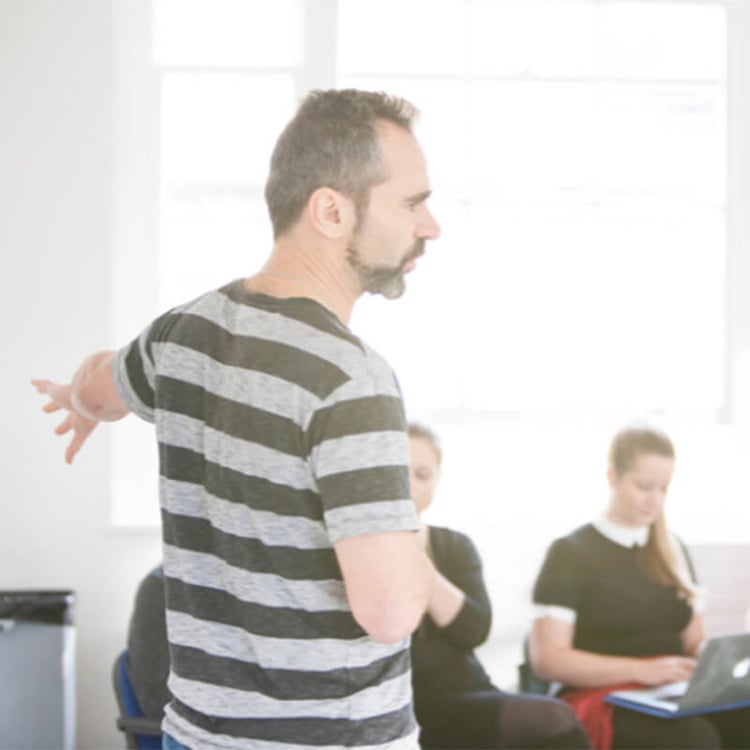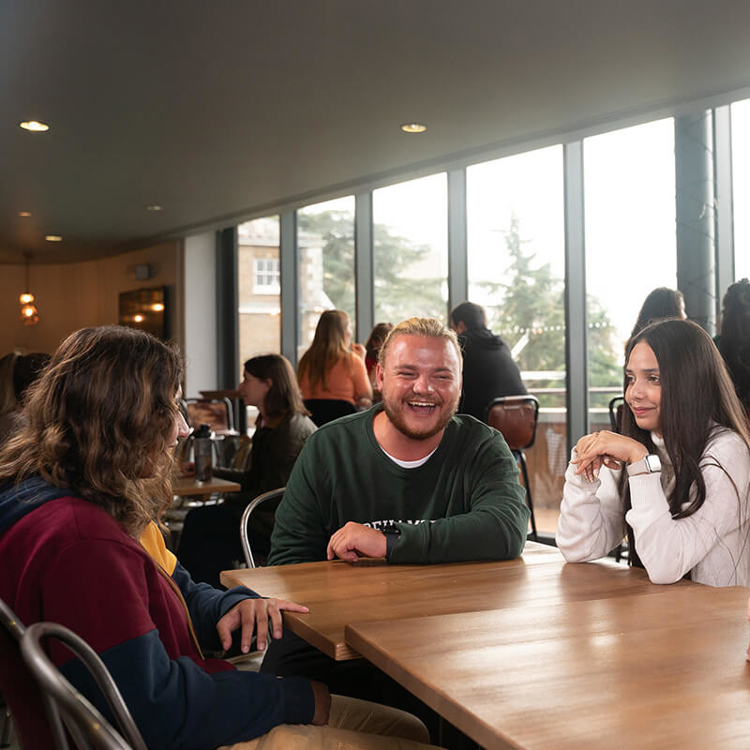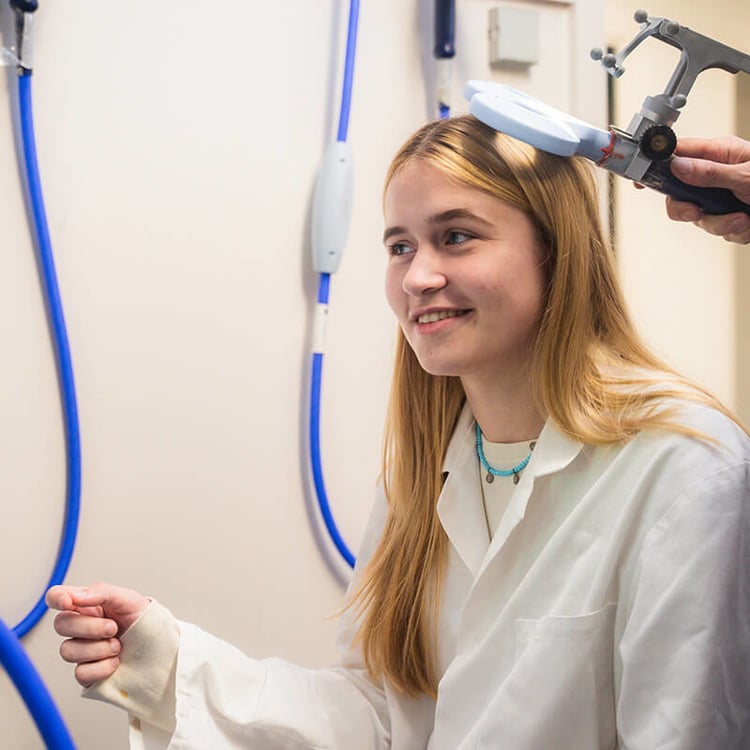Duration:
MA: 2 years (full-time) or 3 years (part-time)
PGDip: 2 years (part-time)
Number of credits:
MA: 180
PGDip: 120
Start date(s):
September 2026
Learn how to work therapeutically with individuals and communities while developing the professional skills, confidence and experience needed to build a meaningful career in counselling and psychotherapy.
The Integrative Counselling and Psychotherapy (MA ICP) trainings at Roehampton are professionally accredited, practice-focused and designed to prepare you for real-world therapeutic work. You will train in an integrative model that combines person-centred, psychodynamic and cognitive approaches, helping you understand both conscious and unconscious processes while developing a strong, relational way of working.
From the start, you will learn through hands-on skills workshops, supervised practice, reflective groups and supported clinical placements. You will complete supervised client work and personal therapy, gaining the depth of experience needed to graduate as a confident, ethical and reflective practitioner ready for professional practice in settings such as the NHS, private practice, education and community services.
You will develop skills in online and telephone counselling and learn how to use research and digital tools to enhance ethical, evidence-based practice, preparing you for the evolving world of therapy.
You will also strengthen your professional identity, critical thinking and reflective skills, enabling you to work confidently with diverse clients and complex clinical presentations. By the end of your training, you will be equipped with the academic depth, clinical experience and professional recognition needed to build a sustainable and rewarding career in counselling and psychotherapy.
Did you know?
If you already hold a BACP-accredited PG Dip, the MA Top-Up programme offers a flexible, part-time route to achieve a full Master’s qualification. This pathway supports career progression, advanced clinical practice, and eligibility for BACP Senior Accreditation.
BACP Accreditation – Application in Progress
Our MA has been accredited with the British Association for Counselling and Psychotherapy (BACP) for over 10 years and our PG Diploma route is currently in the process of applying for accreditation with the BACP.
This accreditation recognises courses that meet the BACP’s rigorous professional standards for training and ethical practice.
Once approved, it will confirm that our PG Diploma programme provides the high-quality training required for professional registration with the BACP.

Modules
This module explores the essential foundations of person-centred therapy within a pluralistic and integrative context, focusing on the development of effective therapeutic relationships. You will engage with key person-centred concepts such as empathy, unconditional positive regard, and congruence, which are crucial for creating a supportive therapeutic environment.
Through experiential learning, including role-plays and reflective exercises, you will enhance your counselling skills while fostering self-awareness in relation to equity, diversity, and inclusion. The module examines anthropological, relational, and ethical foundations of person-centred therapy, equipping you to work with diverse client populations.
This module explores the foundations of clinical, ethical practice in counselling and psychotherapy. It provides students with a in-depth understanding of the BACP Ethical Framework and other professional codes of conduct. To support students to critically engage with complex ethical dilemmas we will interweave underpinning theoretical concepts of an integrative practice as well as introducing the influence of related disciplines on our work as therapists and the changing landscape of mental health provision. We will take a constructive, critical and reflexive approach to the fundamental principles introduced, and the central importance of ethical maturity and the therapeutic relationship, including the role of power, privilege, inequality, difference and diversity as these experiences impact on ethical decision making, the therapeutic relationship and the process of therapy.
This module builds on key theoretical concepts in contemporary therapeutic practice, with a particular focus on psychodynamic and Cognitive Behavioural Therapy (CBT) approaches; with an integration of research findings in the field to consider how these inform practice.
To support students’ developing theoretical and research-informed competence, the module will reflect a core aspect of the work of therapy: the development of students’ capacity for reflexivity in assimilating theory, research and practice. This focus will include an intentional and critical examination of the therapist's (and researcher’s) role, biases, and subjectivity throughout the work.
This module provides students with an opportunity to develop their therapeutic competence in practice. Students will consolidate their understanding of assimilative integration and apply person-centred, psychodynamic and CBT approaches in real-world client work (in placement). The module will support students to build on their understanding of the application of theory & research, ethical awareness, clinical development, and reflective practice. Students will develop an integrative model for therapeutic work in which assumptions about the nature and development of human beings link coherently to the theoretical basis for specific client problems or issues, and the various therapeutic interventions that may be used to facilitate psychological change, growth and healing.
This module provides students with the opportunity to engage in an in-depth, practice-based capstone project that integrates clinical casework with critical engagement in research. Students are supported to develop and submit a substantial case study that draws on relevant theoretical and empirical literature, supervision insights, and professional standards. The capstone replaces a traditional dissertation and is designed to reflect the realities of clinical practice including assessment, formulation and treatment planning, ethical thinking, supervision and therapist well-being. It concludes with the submission of a written case study and accompanying professional poster presentation. Students are guided by tutors throughout the process. Students taking this module will be expected to be in practice and supervision and draw upon their current clinical work to complete the module.
Careers
This programme is designed in line with BACP requirements and current sector needs, preparing graduates for ethical, inclusive, and research-informed practice across a wide range of settings. Career pathways include roles in the NHS, third sector organisations, private practice, Employee Assistance Programmes (EAPs), and specialist therapeutic services.
You’ll develop the core competencies valued by employers, including empathy, communication, reflective practice, ethical decision-making, cultural competence, risk management, and the ability to work integratively across person-centred, psychodynamic, and cognitive behavioural approaches. Supervised clinical placements provide 100 hours of real-world client contact in line with BACP standards, ensuring you graduate professionally ready.
Employability is embedded throughout the curriculum through practice portfolios, supervision logs, authentic assessments, and a Capstone Project that strengthens evidence-based practice and clinical reasoning. Career Development Week activities support professional progression, including guidance on BACP registration and senior accreditation, private practice development, and working in diverse and evolving mental health contexts.
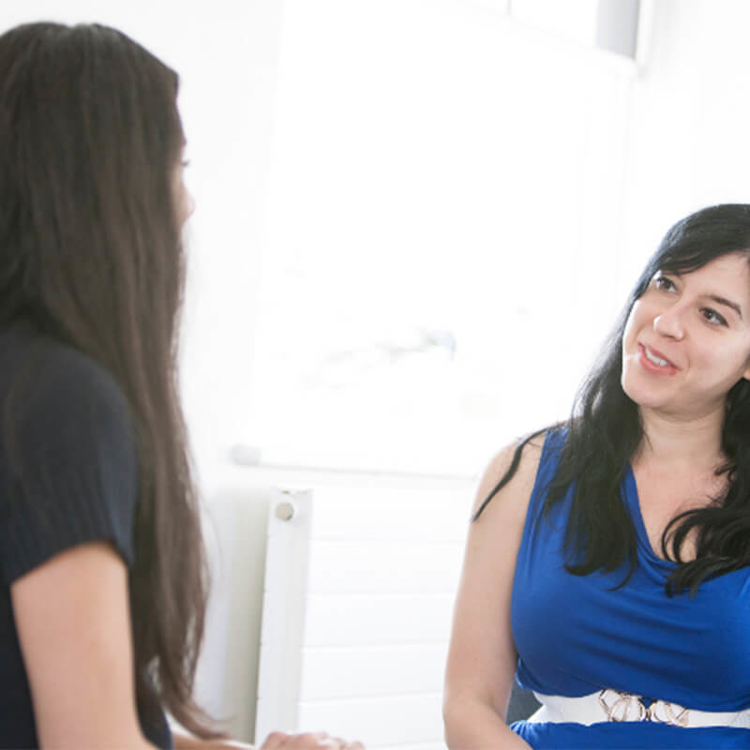
Learning and Assessment
How You’ll Learn:
You’ll learn through a professionally focused, experiential approach that integrates theory, skills development, and real-world practice. Teaching combines interactive lectures, small-group seminars, skills workshops, clinical tutorials, reflective groups, and digital learning activities. Learning is supported through our Virtual Learning Environment (VLE), which provides access to recorded lectures, skills videos, podcasts, and interactive case studies, allowing flexible and accessible study alongside campus-based teaching.
The programme is grounded in an assimilative integration model, helping you explore and combine person-centred, psychodynamic, and cognitive behavioural approaches. Experiential learning is embedded throughout, including role-play, supervised skills practice, reflective journaling, case formulation, and peer feedback, enabling you to develop a confident professional identity that is ethically robust and responsive to diverse client needs.
Learning is inclusive and supportive, with structured academic and clinical guidance throughout your studies. You’ll be encouraged to develop independence and critical thinking, culminating in a Capstone Project that demonstrates research-informed practice and professional competence.
Teaching Hours
This programme meets all BACP requirements for teaching contact hours. You will complete a minimum of 400 teaching contact hours on the PG Dip ICP, with additional hours on the MA ICP through the Capstone Project. These hours ensure you receive sufficient taught input, skills training, and clinical preparation to meet professional standards for practice and progression.
Placements
Placements form a core part of your professional training. You will complete 100 hours of supervised client work as part of the placement module Advanced Integrative Therapeutic Practice, in line with BACP requirements. Before beginning placement, you must pass a ‘readiness to practice’ assessment within Ethical and Professional Issues in Integrative Practice.
Placements normally run across the academic year and are supported by wraparound clinical tutorials, supervision, and portfolio work. Most client work will be face to face, with opportunities to gain online and telephone experience. You will work with adult clients aged 16 and over, ensuring ethical, professional, and service-appropriate practice.
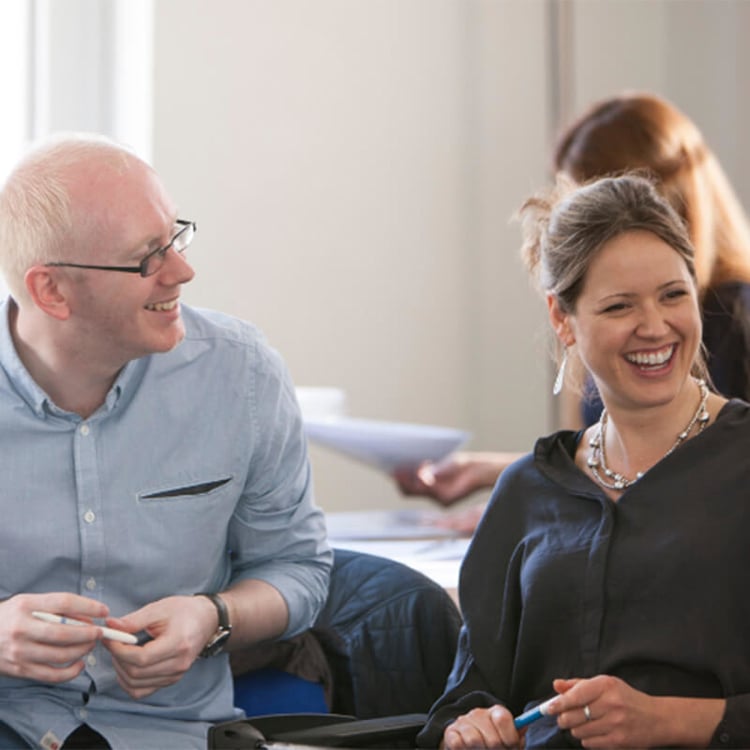
How you’ll be assessed:
Assessment on this programme uses inclusive, applied formats aligned with professional practice and BACP expectations. Instead of traditional dissertations, you’ll complete authentic assessments such as research-informed case studies, practice portfolios, and a Capstone Project featuring a professional poster, reflecting BACP’s emphasis on critical engagement with research and reflective practice.
Formative assessment is embedded throughout, including peer feedback, skills practice, case analysis, and reflective exercises, ensuring timely feedforward to support your progress. Assessment literacy is developed through clear marking criteria, model submissions, and supported opportunities to understand expectations.
Assessments are carefully sequenced to support wellbeing and professional development, including ethical and placement readiness tasks before advanced client work. Feedback is timely, constructive, and developmental, supporting your confidence, competence, and readiness for professional practice.
Already have your PGDip? Consider out MA ICP (Top-up) Programme
The MA Top-Up is designed for professionally qualified counsellors who have completed a BACP-accredited qualification or equivalent Level 7 training and wish to deepen their academic and clinical expertise. This flexible, part-time route offers a clear and efficient pathway to achieving a full Master’s qualification while continuing professional practice.
Key features:
- Flexible part-time study completed over one year, designed to fit around professional practice
- Open to practitioners with a BACP-accredited qualification or recognised prior learning (APEL)
- Centred on a research-informed Capstone Project, combining a clinical case study with a professional presentation
- Develops advanced competencies in critical appraisal, evidence-based practice, and applied clinical reasoning
- Supports career progression, leadership development, and continuing professional development
Professional recognition:
- Aligned with the BACP’s revised requirements for Senior Accredited Member status, which now includes a Master’s-level qualification
- While it does not confer BACP membership directly, it can contribute to applications for Senior Accreditation
This programme is ideal for practitioners seeking progression into supervision, advanced clinical practice, specialist services, leadership, and education or training roles.

Open days
Get a real taste of our campus, community and what it’s like to study at Roehampton
Applying
UK postgraduate students apply through our direct application system.
This course uses a gathered field approach to process applications. Find out more information on how we will process your application.
Application deadline: 10 February 2026.
Interview date(s): 4 March – 30 April 2026.
Specific entry requirements
- An undergraduate degree at grade 2.2 honours or above
- Evidence of enrolment on counselling skills certificate training (minimum Level 2) that has been completed, or will be completed, before entry on the programme.
- Evidence of experience of working in a helping role that uses basic counselling skills and requires active listening and the provision of emotional support with vulnerable adults. This may be in either paid or voluntary employment and at minimum consist of working in this role part-time for six months prior to the start of the academic year.
Please note:
- The MA programme staff interview approximately once a month from February until August. As places are limited on this popular course, we advise you to apply as early as possible. Applicants should demonstrate their reflective capacity and commitment to their personal development.
General entry requirements
The following supporting documents must be uploaded to your applicant portal for the application to be considered complete.
Only applications completed before the application deadline will be reviewed for this programme.
- Academic Reference
- Professional Reference
- CV
- Degree Certificate (N/A if pending)
- Degree Transcript (N/A if pending)
- Level 2 Counselling Skills Certificate
- Passport photo page
- Work experience
September 2025 entry tuition fees (UK)
| Level of study | Part-time* |
| MA | £6,950 |
*Year 1 fee
We offer a wide range of scholarships and bursaries. See our financial support pages for UK students.
We also provide other ways to support the cost of living, including on-campus car parking, hardship support and some of the most affordable student accommodation and catering in London. Find out more about how we can support you.
Additional costs to consider
Personal Therapy
Students must be in weekly, individual personal therapy throughout training, completing a minimum of 35 hours of personal therapy per year. Therapy is mandatory and must be with an appropriately qualified and accredited professional. Costs vary, and some practitioners offer trainee rates. Applicants should research typical fees.
Clinical Supervision
Supervision is mandatory and usually provided by placements, though students may occasionally need to fund additional sessions. Costs vary, and some practitioners offer trainee rates.
DBS Check
Students must apply and pay for an enhanced Disclosure and Barring Service (DBS) check, even if previously completed. Subscription to the DBS Update Service is recommended to reduce costs.
Personal Indemnity Insurance
Students must take out personal indemnity insurance for the duration of their training. Costs vary depending on the provider.
Travel Costs
Students should budget for travel to campus, placements, supervision, and therapy. While local options may be available, this is not always guaranteed.
Books & Equipment
While the library provides an extensive lending and digital library service, some core texts may need to be purchased. Students are also likely to need to buy a password-protected recording device, and an encrypted memory stick for client session recordings.
Professional Membership
Students are encouraged to become student members of the British Association for Counselling and Psychotherapy (BACP).
International postgraduate students apply through our direct application system.
This course uses a gathered field approach to process applications. Find out more information on how we will process your application.
Application deadline: 10 February 2026.
Interview date(s): 4 March – 30 April 2026.
Specific entry requirements
- An undergraduate degree at grade 2.2 honours or above
- Evidence of enrolment on counselling skills certificate training (minimum Level 2) that has been completed, or will be completed, before entry on the programme.
- Evidence of experience of working in a helping role that uses basic counselling skills and requires active listening and the provision of emotional support with vulnerable adults. This may be in either paid or voluntary employment and at minimum consist of working in this role part-time for six months prior to the start of the academic year.
Please note:
- The MA programme staff interview approximately once a month from February until August. As places are limited on this popular course, we advise you to apply as early as possible. Applicants should demonstrate their reflective capacity and commitment to their personal development.
Application deadline: Monday 12 February 2024
General entry requirements
The following supporting documents must be uploaded to your applicant portal for the application to be considered complete.
Only applications completed before the application deadline will be reviewed for this programme.
- Academic Reference
- Professional Reference
- CV
- Degree Certificate (N/A if pending)
- Degree Transcript (N/A if pending)
- Level 2 Counselling Skills Certificate
- Passport photo page
- Work experience
September 2025 entry tuition fees (international)
| Level of study | Part-time* |
| MA | £13,950 |
*Year 1 fee
We offer a wide range of scholarships and bursaries. See our financial support pages for international students.
We also provide other ways to support the cost of living, including on-campus car parking, hardship support and some of the most affordable student accommodation and catering in London. Find out more about how we can support you.
Additional costs to consider
Personal Therapy
Students must be in weekly, individual personal therapy throughout training, completing a minimum of 35 hours of personal therapy per year. Therapy is mandatory and must be with an appropriately qualified and accredited professional. Costs vary, and some practitioners offer trainee rates. Applicants should research typical fees.
Clinical Supervision
Supervision is mandatory and usually provided by placements, though students may occasionally need to fund additional sessions. Costs vary, and some practitioners offer trainee rates.
DBS Check
Students must apply and pay for an enhanced Disclosure and Barring Service (DBS) check, even if previously completed. Subscription to the DBS Update Service is recommended to reduce costs.
Personal Indemnity Insurance
Students must take out personal indemnity insurance for the duration of their training. Costs vary depending on the provider.
Travel Costs
Students should budget for travel to campus, placements, supervision, and therapy. While local options may be available, this is not always guaranteed.
Books & Equipment
While the library provides an extensive lending and digital library service, some core texts may need to be purchased. Students are also likely to need to buy a password-protected recording device, and an encrypted memory stick for client session recordings.
Professional Membership
Students are encouraged to become student members of the British Association for Counselling and Psychotherapy (BACP).


